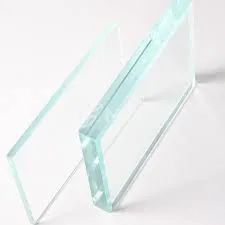Understanding Toughened Float Glass Properties, Applications, and Benefits
Toughened float glass, often referred to as tempered glass, is a type of safety glass that has been treated through a process of extreme heating and rapid cooling to increase its strength. This glass is widely used in various applications due to its enhanced durability, safety features, and aesthetic appeal.
The process of toughening float glass begins with standard float glass. The glass is heated to about 620 degrees Celsius and then quickly cooled. This rapid cooling alters the structure of the glass, introducing compressive stresses on the surface and tensile stresses inside. As a result, toughened glass is significantly stronger than ordinary glass—up to five times more robust, depending on the thickness and type.
One of the most significant advantages of toughened float glass is its enhanced safety features. When broken, it shatters into small, blunt pieces rather than sharp shards, reducing the risk of injury. This property makes it an ideal choice for environments where safety is a concern, such as in commercial buildings, automotive windows, and shower doors. The inherent safety of toughened glass makes it compliant with building regulations and safety standards in many countries.
In addition to safety, toughened float glass also offers excellent thermal resistance. This property allows the glass to withstand significant temperature fluctuations without cracking or warping. Consequently, it is used in applications such as glass doors, facades, and partitions in buildings that may be exposed to varying temperatures throughout the day. Moreover, the glass can be used in solar applications, where it allows light to pass while still maintaining heat resistance.
toughened float glass
The aesthetic appeal of toughened float glass cannot be overlooked. It comes in various finishes and can be treated or coated to enhance energy efficiency, reduce glare, or provide privacy. Its clarity and ability to transmit light make it a popular choice for architectural applications, such as modern skyscrapers, where large glass panels create an open and airy feel.
Environmentally, toughened float glass is fully recyclable, making it an eco-friendly building material. This aspect is increasingly vital in today's construction industry, where sustainability is a priority. Using toughened glass can contribute to lowering a building's overall carbon footprint.
Finally, the versatility of toughened float glass extends to custom solutions. Manufacturers can produce glass in a plethora of sizes and shapes, catering to specific project requirements. Whether it's for windows, glass railings, or glass floors, the adaptability of toughened float glass makes it a favorite among architects and designers.
In conclusion, toughened float glass stands out as a superior choice in the glass industry due to its strength, safety, thermal resistance, aesthetic flexibility, and environmental benefits. Its wide range of applications demonstrates its utility and effectiveness, making it an essential material in modern construction and design. As technology continues to advance, we can expect further innovations in the properties and uses of toughened float glass, ensuring it remains a pivotal element in architectural and industrial designs.
 Afrikaans
Afrikaans  Albanian
Albanian  Amharic
Amharic  Arabic
Arabic  Armenian
Armenian  Azerbaijani
Azerbaijani  Basque
Basque  Belarusian
Belarusian  Bengali
Bengali  Bosnian
Bosnian  Bulgarian
Bulgarian  Catalan
Catalan  Cebuano
Cebuano  Corsican
Corsican  Croatian
Croatian  Czech
Czech  Danish
Danish  Dutch
Dutch  English
English  Esperanto
Esperanto  Estonian
Estonian  Finnish
Finnish  French
French  Frisian
Frisian  Galician
Galician  Georgian
Georgian  German
German  Greek
Greek  Gujarati
Gujarati  Haitian Creole
Haitian Creole  hausa
hausa  hawaiian
hawaiian  Hebrew
Hebrew  Hindi
Hindi  Miao
Miao  Hungarian
Hungarian  Icelandic
Icelandic  igbo
igbo  Indonesian
Indonesian  irish
irish  Italian
Italian  Japanese
Japanese  Javanese
Javanese  Kannada
Kannada  kazakh
kazakh  Khmer
Khmer  Rwandese
Rwandese  Korean
Korean  Kurdish
Kurdish  Kyrgyz
Kyrgyz  Lao
Lao  Latin
Latin  Latvian
Latvian  Lithuanian
Lithuanian  Luxembourgish
Luxembourgish  Macedonian
Macedonian  Malgashi
Malgashi  Malay
Malay  Malayalam
Malayalam  Maltese
Maltese  Maori
Maori  Marathi
Marathi  Mongolian
Mongolian  Myanmar
Myanmar  Nepali
Nepali  Norwegian
Norwegian  Norwegian
Norwegian  Occitan
Occitan  Pashto
Pashto  Persian
Persian  Polish
Polish  Portuguese
Portuguese  Punjabi
Punjabi  Romanian
Romanian  Russian
Russian  Samoan
Samoan  Scottish Gaelic
Scottish Gaelic  Serbian
Serbian  Sesotho
Sesotho  Shona
Shona  Sindhi
Sindhi  Sinhala
Sinhala  Slovak
Slovak  Slovenian
Slovenian  Somali
Somali  Spanish
Spanish  Sundanese
Sundanese  Swahili
Swahili  Swedish
Swedish  Tagalog
Tagalog  Tajik
Tajik  Tamil
Tamil  Tatar
Tatar  Telugu
Telugu  Thai
Thai  Turkish
Turkish  Turkmen
Turkmen  Ukrainian
Ukrainian  Urdu
Urdu  Uighur
Uighur  Uzbek
Uzbek  Vietnamese
Vietnamese  Welsh
Welsh  Bantu
Bantu  Yiddish
Yiddish  Yoruba
Yoruba  Zulu
Zulu 

